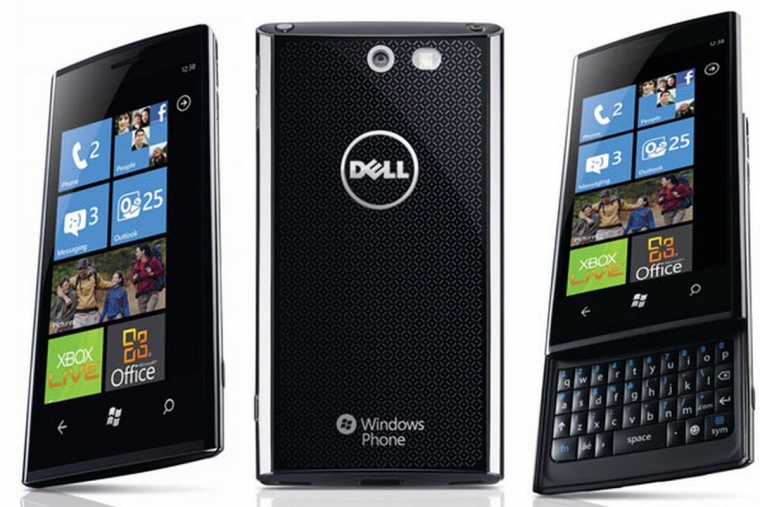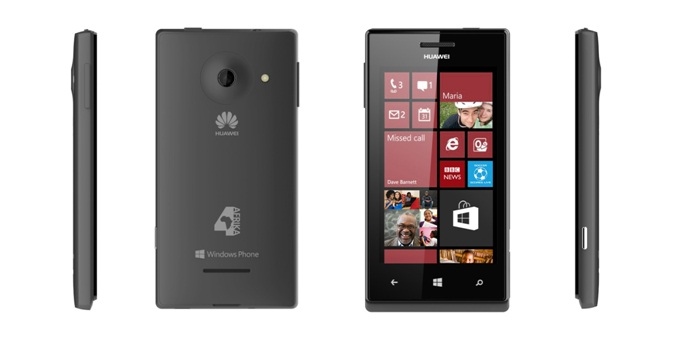Outside of Nokia, HTC, and Samsung, there is only one other active partner using Windows Phone 8 - Huawei, with the budget focused Ascend W1 and the higher specification Ascend W2. Windows Phone 7 had a number of other hardware partners that have left Microsoft's mobile project, such as Acer, Alcatel, Dell, Fujitsu and LG. ZTE is in the mix as well, and while that Chinese manufacturer has made a lot of noise about Windows Phone (both WP7 and WP8), it's not had any significant wins with the platform.

The Dell Venue Pro
In summary, a number of partners have tried to work with Windows Phone, and they've left. The majority of them were on Windows Phone 7, not 8, but they've looked at the platform and walked away. So what is the future for the smaller hardware manufacturers running with Windows Phone?
In the short term, probably very little. Unlike Google and the visible to all 'chinese wall' between the Android and Motorola departments, Microsoft will be integrating Nokia's Devices and Services division into the gestalt as quickly as possible. Any external partner is going to be running at a disadvantage compared to (presumably) the Lumia team.
The Lumia team will be able to significantly influence the design of the OS which should give them better integration of hardware; they'll be able to have earlier access to the builds to ensure their apps work as they intend; and there are natural advantages to having hardware and software developed side by side (not least battery life and CPU efficiency).
Any third party manufacturer such as Huawei will not have those advantages. Couple that hampering with the Lumia team's current dominance of Windows Phone sales, and it would be hard to argue that there is value and a fair crack at the whip on offer for a company that would have to licence Windows Phone from Redmond.

But that's not to say the Microsoft offering is not going to change in the future. While the idea of Android being open leads to the idea of that OS being free, that's far from the case. While the Android Open Source Project is available for anyone to download, the elements that consumers look for in an Android handset need to be purchased - the Google Play app store needs to be licensed direct from Google, and there are further costs if the Google apps are to be installed on the machine. Then there's the matter of the patents that need to be sourced from third party companies (such as Microsoft, and the part of Nokia remaining in Finland).
The low-end market is finely balanced with razor-thin profits. If Microsoft really wanted to help here, there must be some scope for negotiating a lower licence fee. Making Windows Phone a more attractive choice than Android from a financial point of view should be a medium term goal for the company. Once the Lumia team is integrated, that's where I would focus my attention. A saving of $5 per handset, where the build cost may be $60, is a significant one.
Long term, the smaller manufacturers will want to see a vibrant Windows Phone ecosystem, with the popular apps and developers choosing to work in the platform, with customers actively choosing Windows Phone, and potentially a well-respected enterprise solution in use by a significant portfolio of companies.

Whether Microsoft's (modest? realistic? - Ed) goal of 15% market share by 2018 is large enough to accomplish that remains to be see. If it's 15% with developer and manufacturer income that is the equal of Android, it likely won't be worth the effort. But if the ecosystem income is closer to iOS levels per handset (both in apps and in manufacturing) then it may become an attractive platform for the smaller manufacturers, with the volume of users, addressable market, and income, all balancing out the concerns over fighting Microsoft's own hardware.
Microsoft can talk a good game about supporting third party manufacturers in 2014, but many industry watchers will be wary. The manufacturers making a success in the smartphone world are vertically integrated (think Apple and Samsung, and to a certain extent Motorola). With the purchase of Nokia's Devices and Services division, Microsoft is looking to follow that model. How it balances the need to fully encapsulate that model, while also attempting to licence the OS, is going to be a juggling act where its cannot drop a single ball.
That attitude will determine if the smaller manufacturers are going to return to Windows Phone in the future. Because right now, September 2013, Windows Phone does not necessarily look that attractive an option.
